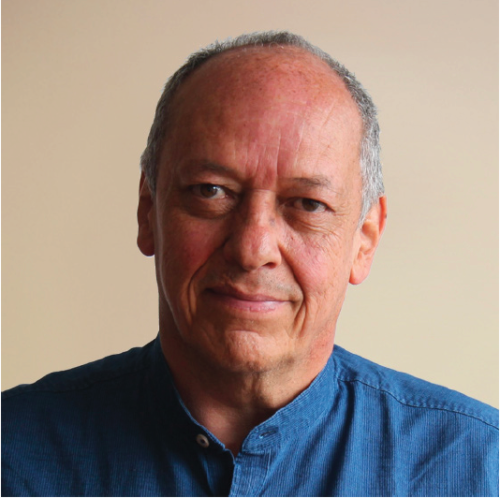Colombia
The conflict in Colombia killed over 450,000 people between 1958-2013. To help those affected, and begin to bridge historic divides, the Global Initiative for Justice, Truth and Reconciliation is advising the Colombian Truth Commission on the best tools for collecting, documenting and sharing the stories of the conflict’s survivors – an integral step to ensuring lasting peace in the country.
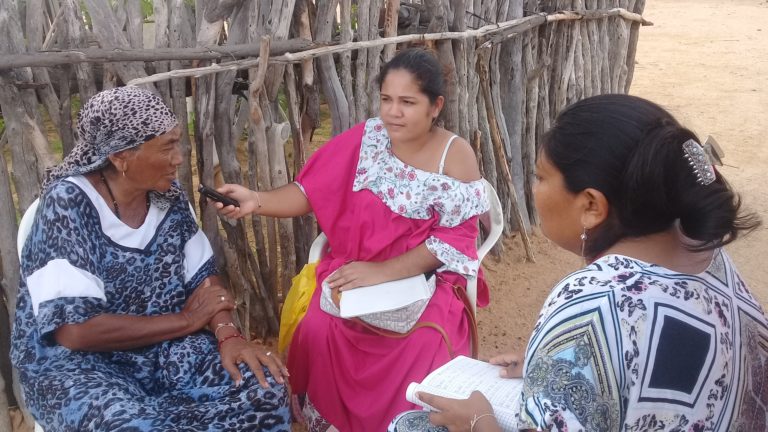
Context
Despite being one of the oldest democracies in Latin America, for more than six decades Colombia was afflicted by a long-standing armed struggle between the government, guerrillas and paramilitaries, resulting in a wide spectrum of human rights violations, including forced disappearances, kidnappings, forced displacement and sexual and gender-based violence. From 2012 to 2016, the Government of Colombia (GoC) held peace talks with the Revolutionary Armed Forces of Colombia (FARC), which was the largest leftist guerrilla group in the country. Following strong pressure from victims’ groups and associations, the parties to the negotiation eventually agreed to address the victims’ claims as a central element to the terms of any possible settlement. A final peace agreement was completed on November 24, 2016.
Project Details
Since 2016, the GIJTR has been working with Colombian victims’ groups and, later, the Truth Commission (Comisión para el Escalrecimiento de la Verdad – CEV) and the Search Unit (Unidad de Búsqueda de Personas Desaparecidas – UBPD) – which formally began on November 29, 2018 – to address a range of identified needs in the country, including truth-seeking and accounting for victims of enforced disappearance, analyzing the mechanisms proposed in the peace agreement, and assessing whether the mechanisms adequately addressed victims’ needs related to truth, justice, and reconciliation.
Through this project, “Supporting Truth, Justice and Reconciliation in Colombia,” the GIJTR has led initiatives that facilitate effective communication between victims and both the Truth Commission and the Search Unit, including exchanges and technical capacity-building trainings for civil society organizations working on forced disappearances to develop skills in forensic techniques; roundtables with state institutions and local and regional archival specialists to develop technical recommendations to strengthen the effectiveness of transitional justice mechanisms’ access to state archives; and sponsoring capacity-building workshop for communities to develop truth-telling initiatives that support the country’s truth, justice and reconciliation endeavors.
Project Objectives
Support civil society organizations in collecting and preserving the stories of marginalized communities
Bolster the capacities of CSOs and communities to design locally-led and culturally appropriate materials and activities to raise awareness about the Truth Commission and the Search Unit, to engage communities in collective truth-telling, to encourage intergenerational dialogue for non-repetition of human rights abuses, and to strengthen archival techniques to develop both oral archives and digital repositories.
Facilitate effective participation of civil society organizations in transitional justice mechanisms
Support the non-judicial transitional justice mechanisms (the Truth Commission and the Search Unit) and the CSOs working with them by ensuring that CSO documentation meets the standards of, and is useful to, the transitional justice mechanisms.
Connect Colombian civil society organizations with similar groups in other Latin American countries
Enhance the capacity of local CSOs in the areas of acknowledgement, reconciliation, non-repetition and enforced disappearance by providing opportunities for exchange of experiences with other Latin American CSOs.
Improve the coordination of the Search Unit and regional CSOs to advance initiatives for the investigation, search, recovery, and identifications of the missing and disappeared in Colombia
Strengthen the technical capacities and forensics understanding of CSOs working in outlying regions of Colombia to advocate on behalf of families of the disappeared and to monitor initiatives undertaken for search, recovery and identification of victims.
This guide aims to introduce readers to the world of podcasts and how this format can become a tool for telling stories. It describes the different stages involved in creating a podcast, but not with the intention of training producers (although we would be honored if that happens). Rather, it shows how communities’ local knowledge and expertise are crucial to bringing a podcast to fruition. More importantly, this guide hones the narrative and creative skills of those who want to tell their own stories and disseminate them beyond their communities. A well-told story becomes a tool for social change and is a credit to the protagonists while doing justice to the complexities of their own lives.
This publication is available in Spanish, English and French. Please, select your preferred language below.
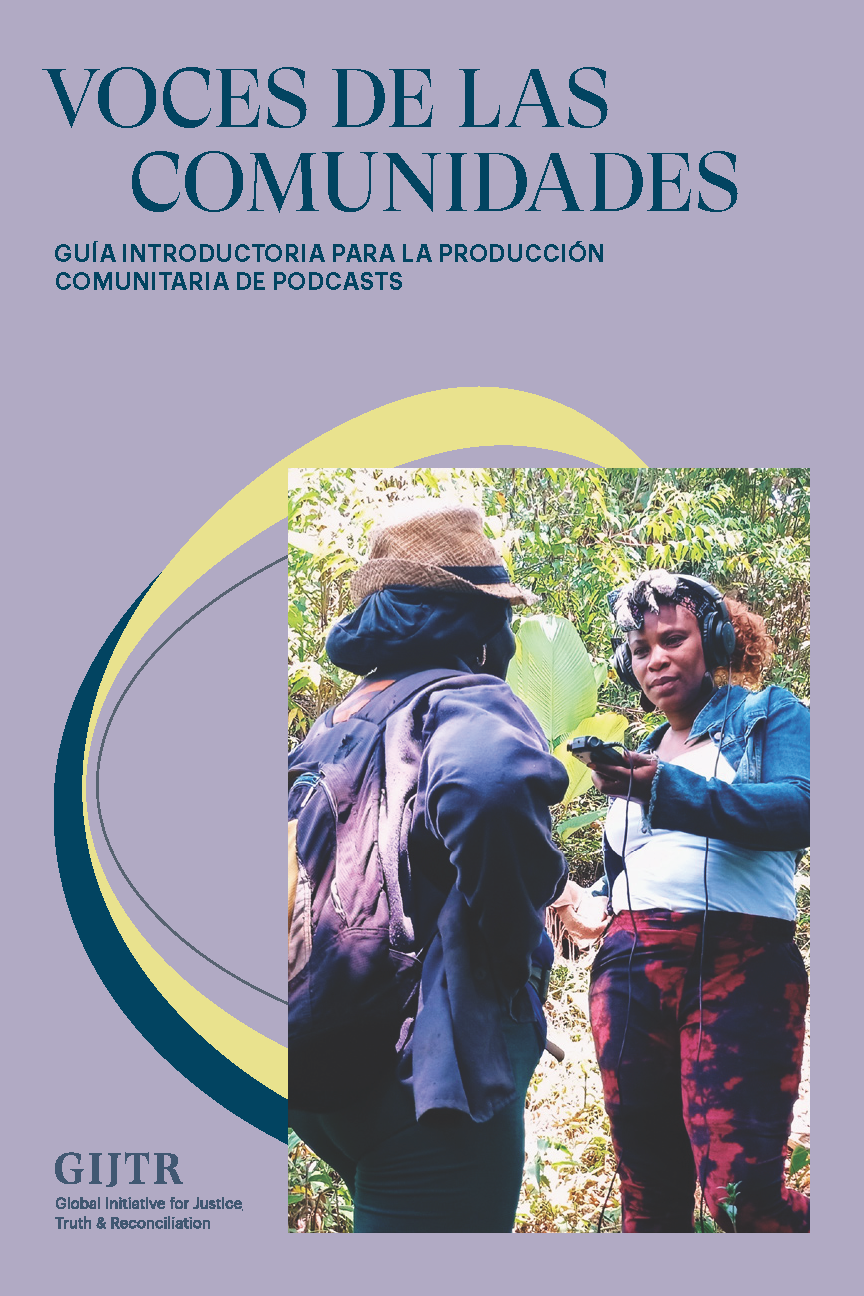
Voces de las Comunidades
Guía introductoria para la producción comunitaria de podcasts
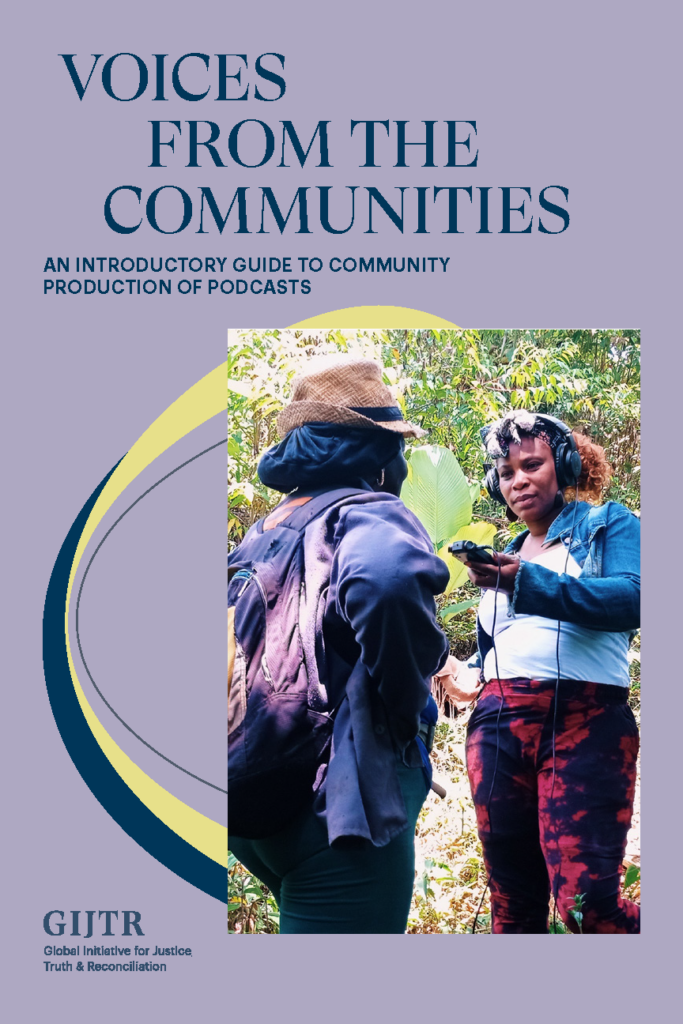
Voices from the Communities:
An Introductory Guide to Community Production of Podcasts
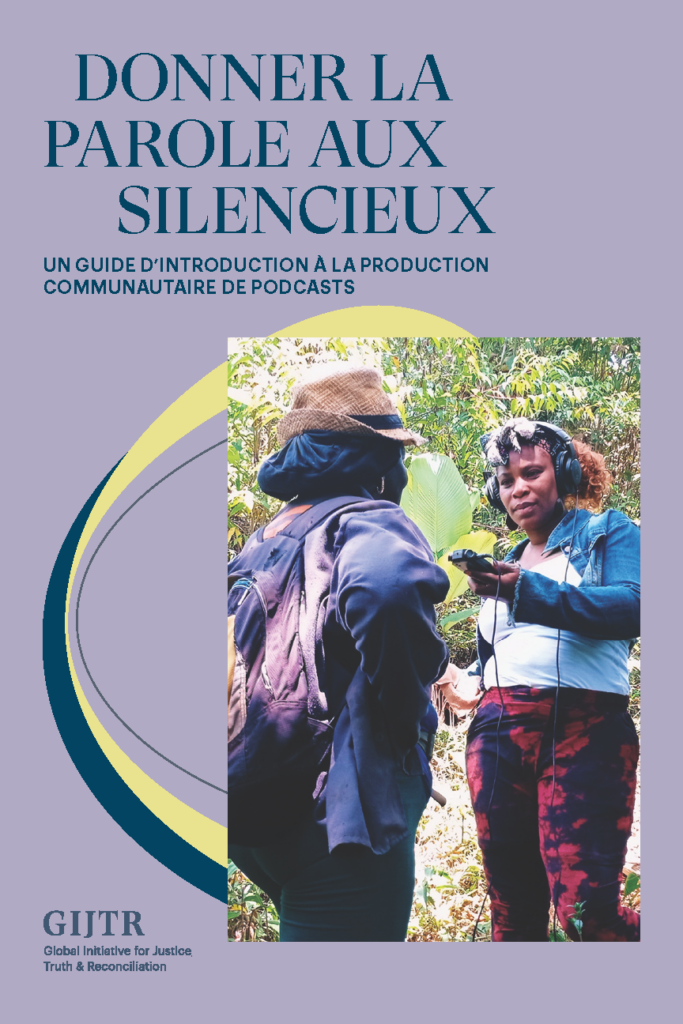
Donner la parole aux silencieux
Un guide d’introduction à la production communautaire de podcasts
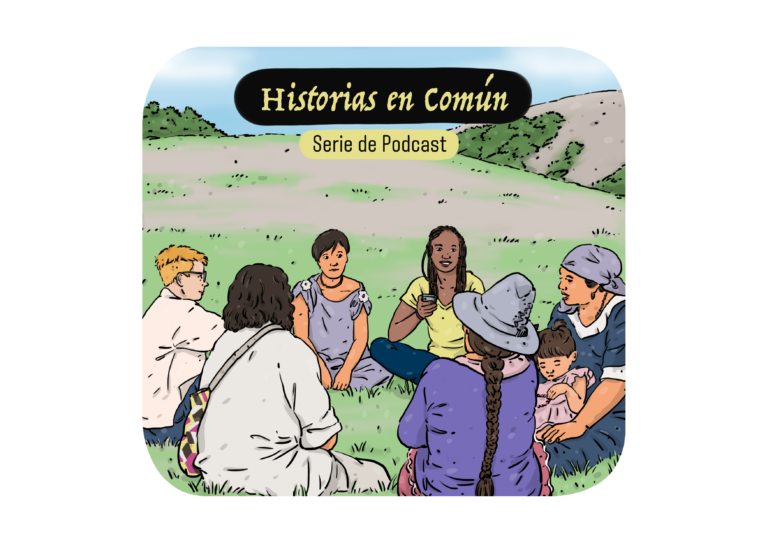
Historias en Común, A Podcast Series
A podcast series in which individuals share their stories using their own voices. Each episode covers experiences from a different community and highlights its unique perspective. Lessons learned from "Historias en Común" and its production process were used as a starting point to develop the introductory guide mentioned above.
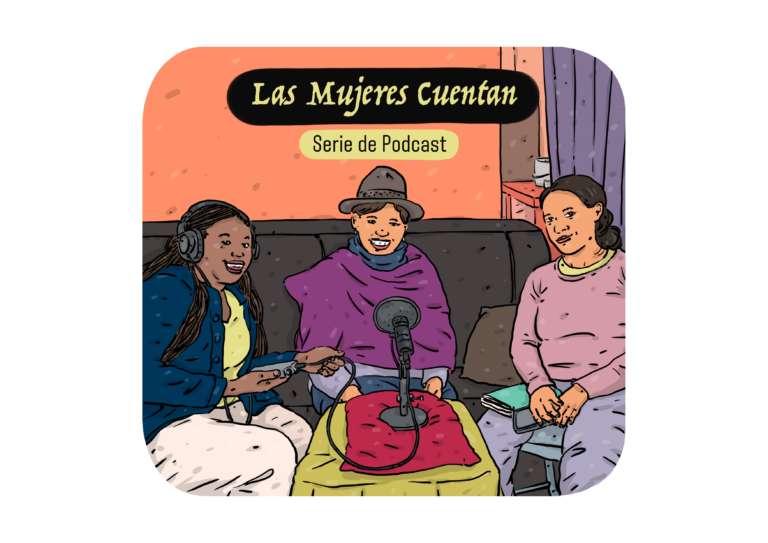
Las Mujeres Cuentan, A Podcast Series
Through their own voices, women share their narratives of resilience, resistance, and transformation in the face of adversity. This podcast not only aims to amplify their experiences but also to create a space for reflection on the crucial role women have played—and continue to play—in building lasting peace in Colombia.
Each episode offers a glimpse into the realities these women face, inviting us to understand the importance of incorporating their perspectives into reconciliation and justice processes.
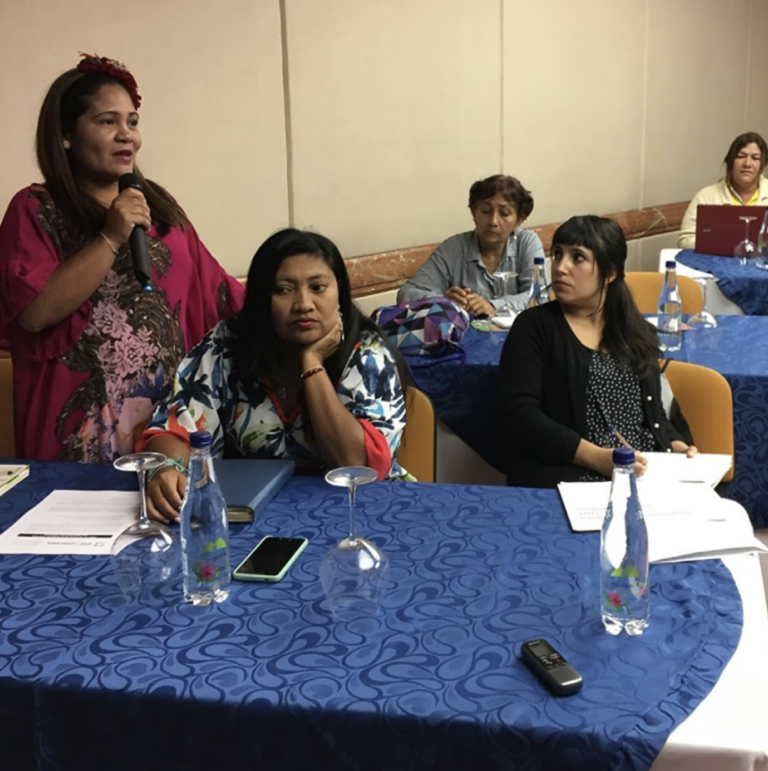
Leading with the Local
Led by the International Coalition of Sites of Conscience, GIJTR partnered with Javeriana Estéreo Bogotá, a Colombian radio station, to develop "50 Vidas," an audio program that portrays the reality of a country that, in the midst of a history traced by violence, decides to give itself a new opportunity and bet on the construction of a different country based on entrepreneurship, collective projects, peace initiatives and actions of forgiveness and reconciliation.
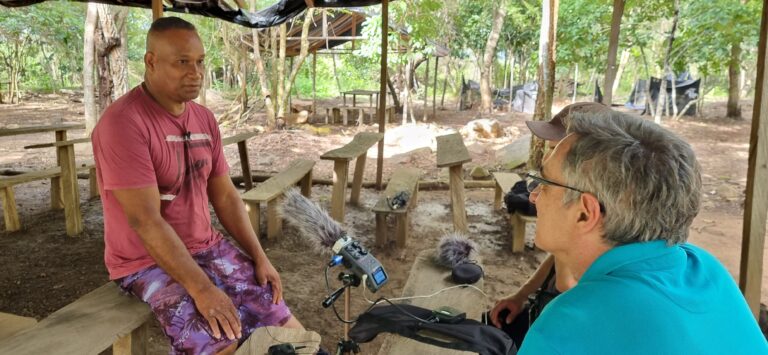
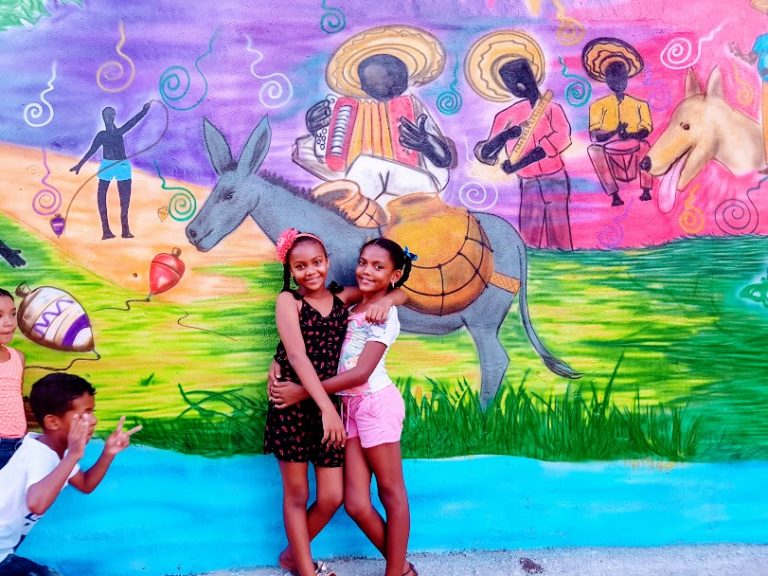
Creating Channels of Trust
To promote healing, awareness and accountability, the GIJTR supported seven truth-telling projects in marginalized communities, projects that have been shared and replicated throughout Colombia.

